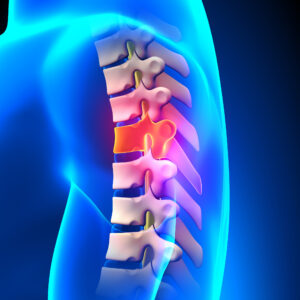Cauda equina syndrome (CES) is a rare yet serious neurological condition which affects 1-3 out of 100,000 persons. While the condition isn’t life-threatening, it can cause serious health complications which would impact the overall quality of your life. It can occur due to a variety of reasons, but our guide will deal specifically with cauda equina medical negligence.
Therefore, you will read about how to claim compensation for cauda equina due to negligent medical treatment by healthcare professionals. You will also gain insight into how your compensation payout could be awarded.
Key Takeaways
- You may have an eligible claim for cauda equina syndrome medical negligence if you suffer from this illness due to negligent medical care.
- Your cauda equina payout may include compensation for your condition and any resulting financial losses.
- It is essential to gather evidence, such as your medical records, to support your cauda equina negligence claim.
- Under the Limitation Act 1980, there is generally a time limit of 3 years to start a cauda equina claim.
- You can claim compensation through the No Win No Fee solicitors on our panel.
Our team of friendly advisors are available around the clock to answer any questions about compensation claims you have. They can discuss the claims process, estimate how much compensation you could claim and assess whether you have good grounds for seeking compensation. For more information on medical negligence, contact us now:
- Call 03301230546.
- Contact us on our website.

Jump To A Section
- Can I Claim For Cauda Equina Medical Negligence?
- The Average Compensation For Cauda Equina Syndrome Claims
- What Is Cauda Equina Syndrome (CES)?
- How Can Medical Negligence Occur With Cauda Equina?
- What Evidence Will I Need To Prove Cauda Equina Medical Negligence?
- Will I Have To Make A Claim Within A Set Time Limit?
- How Medical Negligence Claims Care Can Help
- More Information
Can I Claim For Cauda Equina Medical Negligence?
All medical professionals, whether working for the NHS or a private hospital, need to follow certain standards of practice. They have a duty of care towards their patients to safeguard them from unnecessary or avoidable harm.
Therefore, you may be able to claim cauda equina medical negligence compensation if:
- A medical professional owed a duty of care towards you.
- They breached this duty of care.
- As a result, you suffered unnecessary harm or cauda equina syndrome in this particular case.
Speak to our advisors to book a free consultation with us to find out if you could pursue a claim for medical negligence compensation.
The Average Compensation For Cauda Equina Syndrome Claims
There is no standard compensation amount that can be expected for cauda equina medical negligence. This is because each case of clinical negligence is unique in its facts. Therefore, learning the average compensation for cauda equina syndrome claims may not be of particular use to you or your specific claim.
However, successful cauda equina negligence claims may include compensation under the following heads:
- General Damages: This includes compensation for your pain and suffering, both physical and psychological.
- Special Damages: This includes compensation for the financial hardships you have incurred as a result of the cauda equina injury.
For general damages, your medical negligence solicitors or any other expert could refer to the Judicial College guidelines (JCG). These guidelines provide compensation ranges for various injuries and illnesses. The table below summarises the injuries related to the symptoms of cauda equina, barring the top row. Please use this table only for guidance.
Injury Notes Compensation Guidelines
Multiple Severe Injuries and Special Damages There is a combination of injuries and illnesses and financial losses resulting from them. Up to £1,000,000+
Paralysis-Tetraplegia There is significant pain along with disability and a loss of senses, affecting quality and expectancy of life. £396,140 to £493,000
Paralysis-Paraplegia The compensation will depend on life expectancy, degree of dependence and pain and suffering. £267,340 to £346,890
Bowel- Severe (a) There is complete loss of urinary function and control and natural bowel function along with other complications. Up to £224,790
Back Injuries-Severe (i) There is the most severe damage possible to the spinal cord, leading to very serious consequences like sexual dysfunction, bladder and bowel impairment, incomplete paralysis, pain and disability. £111,150 to £196,450
Back Injuries-Severe(ii) This injury causes consequences which are normally not associated with back injuries, such as impaired mobility, loss of sensation, scarring and sexual complications. £90,510 to £107,910
Back Injuries- Severe (iii) These are cases of soft tissue injuries or disc lesions on the vertebral column causing serious pain and discomfort, sexual difficulties, impaired agility and psychological trauma. £47,320 to £85,100
Back Injuries- Moderate (i) This bracket includes cases of prolapsed intervertebral disc which requires surgery or nerve root irritation damaging the intervertebral disc and reducing mobility. £33,880 to £47,320
Back Injuries-Moderate (ii) This bracket includes cases of prolapsed discs which require laminectomy or has a risk of relapses. £15,260 to £33,880
Bladder- Complete Loss of Function Function and control is totally lost. Up to £171,680
Special Damages For Cauda Equina Syndrome
You may also be eligible to claim for your financial losses under special damages. However, anything you are claiming for would require documentation, such as payslips to recover your lost wages or an invoice for nursing costs.
Items you could recover costs for include:
- Lost earnings.
- Home help, including with cleaning and childcare.
- Domestic adaptations, such as fitting a stairlift.
- Vehicle adaptations to accommodate your new disability.
- Nursing or carer costs.
- Mobility aids.
Feel free to use our medical negligence calculator or call our advisors for further guidance.
What Is Cauda Equina Syndrome (CES)?
Cauda equina syndrome (CES) is a condition which affects the cauda equina nerves. These nerves are located at the lowest part of the back and perform the following functions:
- Bladder and bowel control
- Control of the legs
- Sensation in the skin around the genitals, inner thigh and the back.
When CES occurs, this group of nerves is compressed, and the most common cause is the bulging of the lower back in the same spaces as the nerves. Other causes of this ailment include:
- Spinal tumour
- Narrowing of the spinal canal
- Spinal fracture or infection
- Trauma, such as a gunshot or stab wound.
- Accidents, such as a car crash or a fall.
What Are The Symptoms Of CES?
Some common symptoms include:
- Severe numbness or weakness in both legs, which may get worse.
- Numbness around the genitals
- Sciatica on both sides of the body
- Bowel and bladder incontinence or the inability to relieve yourself.
- Loss of sensation in the thighs or around the buttocks.
What Effects Can CES Cause?
If CES is left undiagnosed or untreated, it could lead to the following long-term effects:
- Sexual dysfunction
- Psychological distress
- Chronic pain
- Permanent nerve damage
- Partial or total paralysis.
- Saddle anaesthesia, or the loss of sensation in the area around the inner thighs, buttocks and perineum.
In the section below, we will discuss how cauda equina medical negligence can occur. Speak to our advisors for more information on hospital negligence.
How Can Medical Negligence Occur With Cauda Equina?
There are many reasons for the occurrence of cauda equina medical negligence, such as:
- Misdiagnosis: The combination of leg and back pain is a very common symptom of CES. Since the initial symptoms of sciatica often include pain in the lower back and leg, CES could be misdiagnosed.
- Undiagnosed CES: If the person suffers only from back pain, the medical professional may diagnose it simply as a generalised backache. Since backache doesn’t usually require emergency treatment, this cauda equina syndrome may be left undiagnosed until it’s too late.
- Delay in following up on MRI scans until the person’s condition deteriorates.
- Surgical negligence causing permanent nerve damage.
Have you suffered from a delayed diagnosis? Call our advisors now for a discussion.
What Evidence Will I Need To Prove Cauda Equina Medical Negligence?
Here are some examples of the evidence which would support your cauda equina medical negligence claim:
- Diary entries or any personal records narrating your health condition or your experience at the hospital.
- Pictures of any visible scars/marks on your body.
- Copies of communication with your healthcare provider.
- Medical records including GP notes, prescriptions and scan results.
- Financial records, such as invoices and bank statements, for special damages.
- Contact details of the person who accompanied you to the hospital for witness statements.
Call us now for free advice about gathering compelling evidence. We could also connect you to one of the solicitors from our panel (if you are eligible), who could further help you collect evidence.
Will I Have To Make A Claim Within A Set Time Limit?
According to the Limitation Act 1980, you have 3 years to start your cauda equina medical negligence claim. This time limit begins from the date of the occurrence of medical negligence or the date of knowledge of the same.
There may be exceptions to the time limit depending on your situation. Speak to our advisors for more information on determining time limits.
How Medical Negligence Claims Care Can Help
Our panel of medical negligence solicitors can help you in the following ways:
- Explaining complicated medico-legal terms.
- Gathering evidence.
- Calculating the medical negligence compensation amount.
- Negotiating or communicating with the healthcare provider involved
You may be concerned about the expenses associated with making cauda equina claims. If you have an eligible claim, our advisers will put you in touch with the No Win No Fee solicitors on our panel. They will work on your cauda equina injury claim through a Conditional Fee Agreement (CFA), meaning that you won’t have to pay for their work:
- Upfront
- In the beginning or the middle of your claim
- If you lose your case.
Your solicitor will charge you only a success fee if your claim is successful. This is an established percentage of your cauda equina compensation, and it has a legal cap to prevent any unfairness.
Contact Our Advisors
For more information on No Win No Fee agreements, contact us now:
- Call 03301230546.
- Contact us on our website.

More Information
Thank you for reading our guide on cauda equina medical negligence. You may read some of our other guides:
- Our guide on cerebral palsy claims.
- Information on gynaecology medical negligence.
- Details on fertility negligence claims.
Here are some external resources for more information:
- Information from the NHS on peripheral neuropathy or nerve damage.
- Guidance from the NHS on erectile dysfunction.
- Government resource on disabled people.

